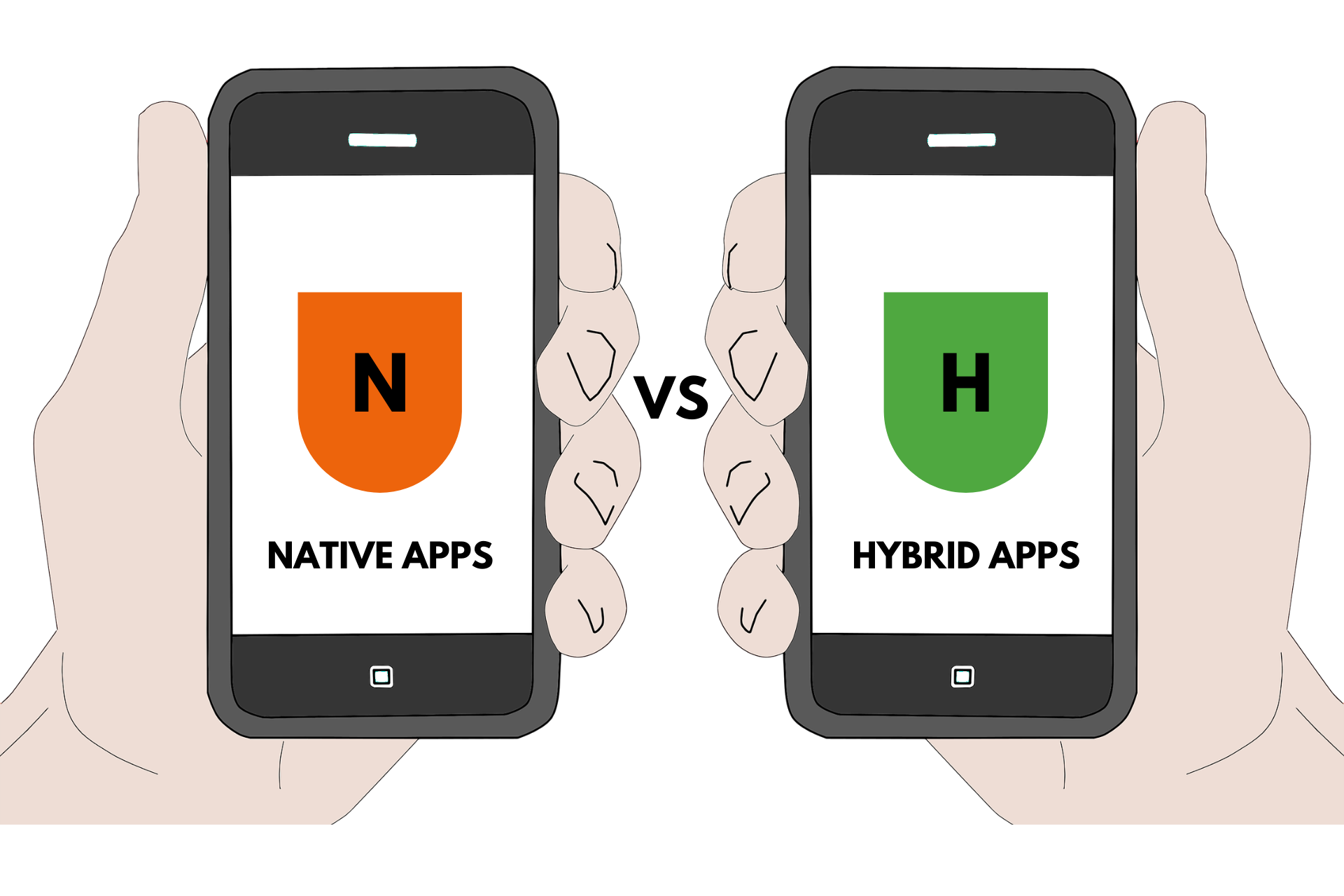Mobile Website, Native App, or a Hybrid App – which platform you should opt for? This is the most common question that routinely floats up in today's app development landscape. As an app developer, you will need to consider a few essential things before developing an app.
Hybrid App Development & Native App Development: Advantages and Disadvantages
The existence of budget-friendly smartphones has hugely resulted in our addiction to smartphones. This ultimately makes it a challenge for app development companies to choose the right platform between Native and Hybrid App Development.
Role of UI & UX in Mobile App Development
Before exploring the Hybrid and Native App Development platforms, the most essential aspect of it you being a developer needs to consider is 'the Customer'. Well, customers are least concerned about the platform and technology used to create the app they are using. They are only concerned about accessing the app rather than knowing how they are created. To add more, customers use an app once or twice in case if it is inoperative in the first attempt. Only 10 to 15 percent of customers offer an app more than two attempts. This is the reason why User Experience (UX) and User Interface (UI) is a vitally important aspect of an app.
Read also: React Native vs Ionic: Which One of Cross-Platform App Development Frameworks Is Better?
How to identify mobile app is native or hybrid?
A Native Mobile App is created to be used in an individual platform or device, like iOS, Windows, Blackberry, and Android. Native apps are particularly created to be used in a specific mobile platform in its aboriginal programming language;
• iOS (Swift / Objective-C)
• Android (Kotlin / Java)
• Windows (C#)
Each platform follows different guidelines and the app developers have to stick to each since they are different in terms of graphic styles, visual effects, gestures, typography, data entry, etc.
In regards to the hybrid apps, a Hybrid App Development Company creates a single app for multiple platforms; that are Android, Windows, and iPhone. In actuality, hybrid apps are a combination of both native and web apps. A hybrid app is a single product that collaborates with multiple operating systems; that can be iOS, Android, or Windows.
A hybrid app looks like a native application but is operated by the company's website. It is built with JavaScript, CSS, and HTML5 and fundamentally is a web-based program chimed in a native app shell and associated with the device hardware.
Hybrid vs. Native app advantages
There are various pros and cons to both hybrid and native app techniques.
Native App Development – Advantages
• Performance – While developing a native mobile application, developers will have to code for various platforms employing different programming languages for each operating system. This means, there are various versions of a single application created for each platform and for being precise to the specific operating system, it can give you a smooth performance.
• Speed – Since the native application has been optimized for OS or iOS, it tends to achieve the highest grades in terms of performance and speed. Every single thing including memory and battery utilization is considered while developing a native app. When developing a native app it becomes quite easy to establish gesture support for an app and incorporate new innovative functions.
• User Experience – For app developers it is very important to build mobile apps that can create a good impression to ensure that the apps once installed are not deleted immediately. The feel and user experience in a native app are greater with smoother scrolling, profound effects & animations, special gesture recognition, appealing elements, and much more.
• Protection & Security – A fully efficient hardware resources are most needed to protect data and that is practicable in native app development.
• Flexibility – Native applications offer easy and fast access to the inbuilt device utilities; that are a camera, calendar, GPS, microphone, and various other functions smartphones may have. Nevertheless, hybrid app development particularly has limitations when creating the interface since a single app will be using multiple platforms. With no restrictions, everything offered by the technology in native apps is implemented.
• Personalization – Native app development is the best way to adjust the layout on various android devices available with various screen sizes.
Hybrid App Development – Advantages
• Cost – While creating hybrid apps the development process happens only once for whatever platform it may be; whether it is Windows, Android, or iOS. There isn't any need to employ different Programmers. This makes Hybrid app development cost pocket-friendly when compared to the native app development.
• Maintenance – Hybrid apps are web applications that are incorporated into a native shell. You can update the contents as many times as you require. This indicates that hybrid apps offer low maintenance.
• Time – In today's competitive market a similar idea can be picked by various businesses. So, you will want your mobile application to go live as early as possible. If so, you should opt for a hybrid app.
Conclusion
Features like once source code, easy updates, budget-friendly costs, cross-compatible technologies, availability of required resources, and speed to market make hybrid apps more appealing. The added advantages the native apps have are specific to the OS whereupon the app is built; i.e. GPS address book, camera, and etcetera. Moreover, the native approach proffers the best security for an application, the best performance, and access to native APIs, and highly responsive user interface.
Ultimately, the higher investment you make for your business will save both money and time, in the long run, offering you the best user experience and standard app performance.












